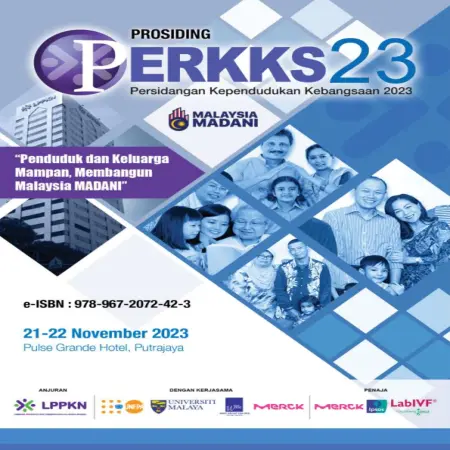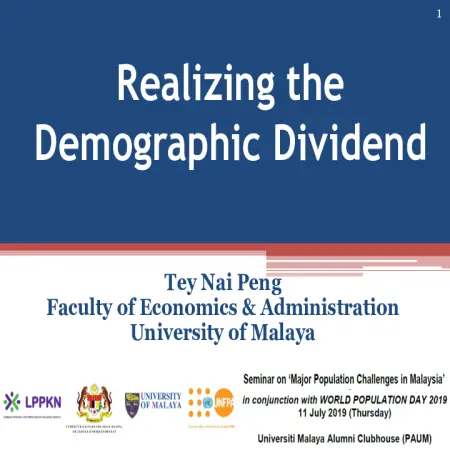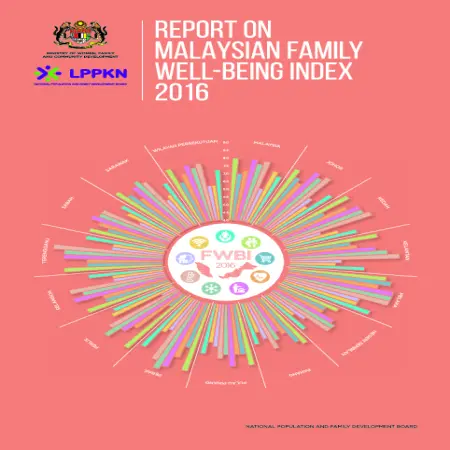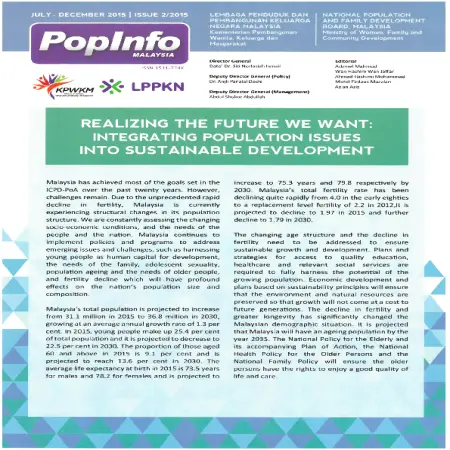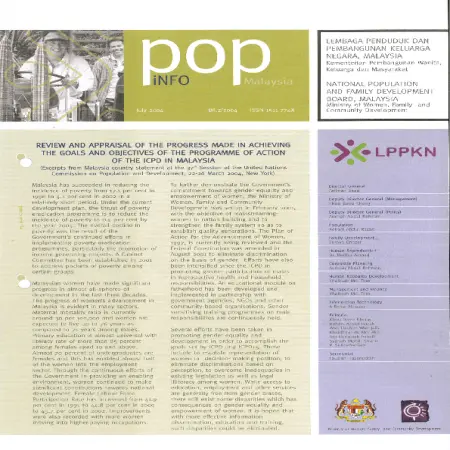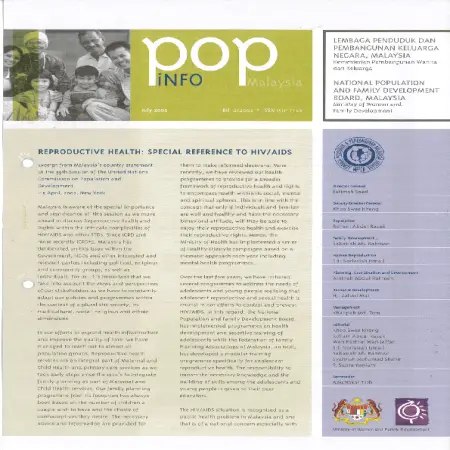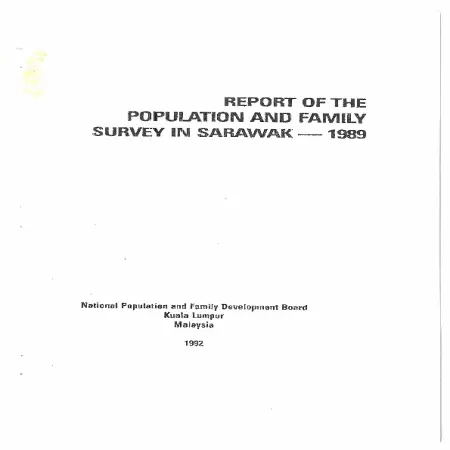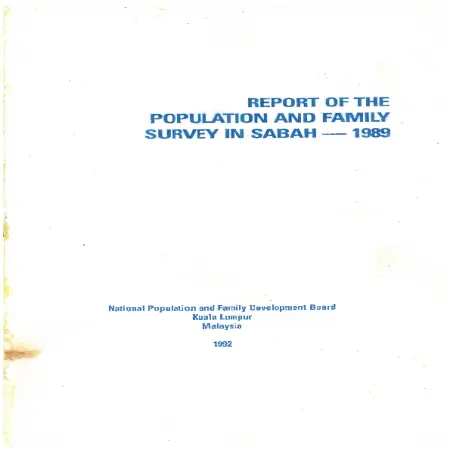TOPICS
Results for Topics : "Population"
|
|
Review on big data analytics in population research: methods and application
Item Type: Book Section
Editor:
Year: 00/12/2023
Abstract: This exploration delves into the transformative influence of big data analytics on population research, encompassing methodologies, tools, applications, challenges, and their chronological distribution. It scrutinizes the digital era's impact on the field and the emergence of novel data sources and techniques. Key research papers contributing to this discourse are also highlighted.
|
|
|
|
|
|
Realising the demographic dividend
Item Type: Conference or Workshop Item
Editor:
Year: 00/00/2019
Abstract: Malaysia has done well in harnessing the demographic dividend through pragmatic planning and management, and investment in health and education. It is ranked among the very high Human Development index country (from 63 to 57). Achieved almost all the goals of ICPD (1994-2014) and MDGs (2000-2015).
|
|
|
|
|
|
Report on Malaysian Family Well-Being Index 2016
Item Type: Research Report
Editor:
Year: 00/00/2017
Abstract: The NPFDB (2011) defined family well-being as a safe, healthy, comfortable, harmonious and satisfying family condition. This definition covers various aspects, such as spiritual satisfaction and comfort in respect of their economy and finance; mental, psychosocial, and health; political: and sustainability. Family Well-Being Index (FWBI) 2016 measured the level of family well-being through a household's assessment by the father or mother regarding the well-being of their families. This index examined the level of well-being in terms of family relationships, family economy, family relationships, family economy, family health, family safety, family and community involvement, religious and spiritual practices, housing and the environment, and family and communications technologies in the country. The overall FWBI 2016 score was 7.33 out of a maximum score of 10.
|
|
|
|
|
|
Report on key findings Fifth Malaysian Population and Family survey (MPFS-5) 2014
Item Type: Research Report
Editor:
Year: 01/12/2016
Abstract: The 2014 Malaysian Population and Family Survey is the fifth in a series of surveys conducted by the NPFDB every 10 years since 1974. This fifth survey was funded by the Economic Planning Unit of the Prime Minister’s Department under the 10th Malaysia Plan allocation. In conducting the survey, the NPFDB received tremendous cooperation and support from various agencies at federal and state levels as well as from nongovernmental organisations. The purpose of this survey was to collect the latest information and time series data in respect of demography, family and reproductive health of the Malaysian population. It also aimed to update the indicators obtained based on the previous surveys in the series. The MPFS-5 provides specific information on the population, household, family formation, fertility, family planning, family life, health practices, elderly as well as the social and sexual behaviours of the adolescents. It also collected the latest information on career and family balance, well-being, breastfeeding, secondary infertility, financial management, intergenerational assistance and the use of social media.
|
|
|
|
|
|
Realizing the future we want: integrating population issues into sustainable development
Item Type: Newsletter
Editor:
Year: 00/00/2015
Abstract: Malaysia is closely monitoring the developments and discussion on the post-2015 development agenda. Malaysia believes that the post-2015 development agenda should integrate existing international commitments and outcomes of UN conferences and deliver on equality, social inclusion, decent work, and sustainable livelihoods.
|
|
|
|
|
|
Review and appraisal of the progress made in achieving the goals and objectives of the programme of action of the ICPD in Malaysia
Item Type: Newsletter
Editor:
Year: 00/07/2004
Abstract: The role of the civil society organisations and non-government organisations as partners in the implementation of population programmes has been recognised and supported in Malaysia. Their involvement, participation, sharing resources and consultation have been pivotal to the sucess of the population related programmes.Since ICPD, annual dialogues between Government and NGOs have been conducted to facilitate greater smart partnership. Recognizing their role, grants are made available by the Government to NGOs to enable them to play more effective role in grassroot programmes and activities.
|
|
|
|
|
|
Reproductive health: special reference to HIV/AIDS
Item Type: Newsletter
Editor:
Year: 00/07/2002
Abstract: The HIV/AIDS situation is recognised as a public health problem in Malaysia and one that is of a national concern especially with regard to the spread of HIV / AIDS among young people and to newborns through mother-to-child transmission. Since the first case of AIDS was reported in Disember 1986, there has been a geometric increase in the number of HIV infections. Over the last seven years (1995-2001), the average number of new cases reported annually was 4,716. By 2001, the cumulative number of HIV infections was 44,208 with 1,258 cases of AIDS and 934 deaths.
|
|
|
|
|
|
Report of the Population and Family Survey in Sarawak - 1989
Item Type: Research Report
Editor:
Year: 00/00/1992
Abstract: The main objective of the Population and Family Survey in Sarawak was to provide necessary data for the formulation, implementation and evaluation of population and family development programmes, in line with national objectives. Specifically, the survey was conducted to collect information on socio-cultural determinants of fertility and maternity patterns, fertility preferences and behaviour, female labour force participation, childcare arrangement, family life, family planning practices, socio-economic status of subgroups, as well as population profiles and migratory patterns.
|
|
|
|
|
|
Report of The Population and Family Survey in Sabah - 1989
Item Type: Research Report
Editor:
Year: 00/00/1992
Abstract: The main objective of the survey was to provide necessary data for the formulation, implementation and evaluation of population and family development programmes, in line with national objectives. Specifically, the survey was conducted to collect information on socio-cultural determinants of fertility and maternity patterns, fertility preferences and behaviour, female labour force participation, childcare arrangement, family life, family planning practices, socio-economic status of subgroups, as well as population profiles and migration patterns.
|
|
|
|





